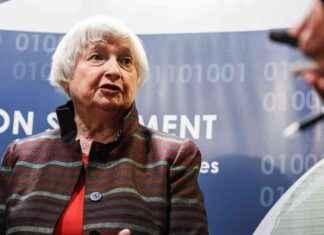Sign up for one of our email newsletters.
Updated 17 minutes ago
U.S. Steel Corp.'s CEO said Wednesday that he is “optimistic” about the Trump administration's stance toward manufacturing and the potential for creating “good, quality jobs.”
“This administration is saying all the right things and asking how they can better prepare themselves to make sure our laws are respected,” Mario Longhi said during a conference call with investors. “The president is remaining true to his campaign promises, and one of them is buy America and hire America.”
Trump has said he wants a “Buy America” requirement on fossil fuels pipeline construction.
It is not clear what impact a proposed border tax might have on U.S. Steel products because many of Trump's cabinet nominees are awaiting confirmation, Longhi said.
Longhi and CEOs from Dell, Ford, Johnson & Johnson, Lockheed Martin and other companies met Jan. 23 with Trump and Vice President Mike Pence to discuss the border tax and what Trump termed a “75 percent” cut to government regulations.
In fourth-quarter results the Pittsburgh-based steel manufacturer announced after the market closed Tuesday, U.S. Steel had a loss of $105 million, or 61 cents per share, compared to a loss of $1.1 billion, or $7.74 per share, in the year-ago quarter.
For full year 2016, the company lost $440 million, or $2.81 per share. That compares to a loss of $1.6 billion, or $11.24 per share for full year 2015. Sales fell 11 percent year-over-year to $10.3 billion.
“We are starting 2017 with much better market conditions than we faced at the beginning of 2016,” Longhi said. The company's Carnegie Way efficiency plan — implemented in 2014 to cut costs and boost profits — has “improved our cost structure, streamlined our operating footprint and increased our customer focus,” he said.
Market conditions continue to be volatile, however, Longhi added. “We must remain focused on improving the things that we can control,” he said.
The price of U.S. hot-rolled steel coil, a benchmark product used in everything from bridges to microwaves, rose 33 percent in the fourth quarter from a year earlier, helped by successful U.S. trade cases against imports.
Foreign steel shipments in December were down 40 percent from the high reached in 2014, according to Census Bureau data that dates to 1997.
Longhi said circumvention is still a concern for steelmakers. U.S. Steel and other steel producers filed a request with the Commerce Department in September 2016 to investigate whether imports of some steel products from Vietnam had been diverted from China before being exported to the U.S.
“That is still a delicate area,” Longhi said, “that requires a lot more work to be done.”
Kim Lyons is a Tribune-Review contributing Holiganbet writer.
Our editors found this article on this site using Google and regenerated it for our readers.





